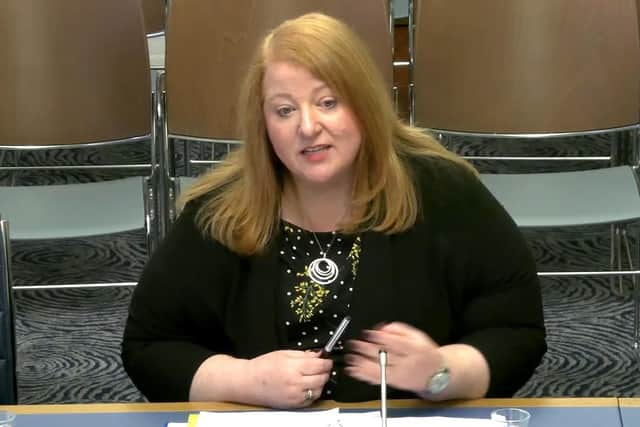Hate Crime Scotland: Chairperson of Stormont Justice Committee not convinced by Justice Minister Naomi Long's assurances on home privacy in new Hate Crime bill for Northern Ireland
and live on Freeview channel 276
Hate crime legislation which recently come into force in Scotland has already removed the private dwelling defence, which stops people from being prosecuted for expressing private thoughts in their own home.
The London-based Free Speech Union has warned that unlike the Public Order Act in England and Wales, Scotland’s hate crime legislation means that Scots "can now be prosecuted for ‘stirring up’ hatred in their own home, which raises the spectre of children testifying against their gender critical parents in court".
Advertisement
Hide AdAdvertisement
Hide AdAsked for its view about the issue, the Law Society for Northern Ireland told the News Letter last week: "Any changes introduced must balance potential offending against the right to freedom of expression and privacy which requires protection in particular circumstances."


After completing Northern Ireland's Hate Crime Review in 2021, Judge Des Marrinan recommended that the private dwelling defence “should be removed” in the forthcoming NI bill, but added that the law should ensure “that truly private conversation can be excluded from the reach of the criminal law”.
However, when asked by the News Letter how he would define a “private conversation” legally to protect it from PSNI scrutiny, the judge said that despite a year and a half's work, he had been unable to come up with a definition..
His proposed solution was for the Justice Minister and MLAs to take two years to hammer out a solid definition of a private conversation.
READ MORE:
Advertisement
Hide AdAdvertisement
Hide AdHowever, despite the Department of Justice beginning consultation almost two-and-a-half years ago, it has not been able to give any indication of any progress on the definition, despite repeated inquiries by the News Letter.
This week,the chair of the Stormont Justice Committee, DUP MLA Joanne Bunting, pressed the minister to clarify her plans for home privacy in the bill.
Advertisement
Hide AdAdvertisement
Hide Ad"Could I ask the Minister if she will give reassurance to this house around privacy in the home and also that the PSNI will not be turned into the thought police?" she asked.
Neglecting to mention home privacy in her reply, the minister responded: "There is no intent to criminalise thought. There is no intent to criminalise opinion."
"Any legislation will be developed in accordance with articles nine and ten of the European Convention on Human Rights, and as such will not affect people’s ability to have private conversation.
“In fact, the intention in terms of freedom of expression is to extend the protections for freedom of expression to exist for all private conversations, irrespective of where it takes place, unlike the current situation where only in a private residence is it protected.”
Advertisement
Hide AdAdvertisement
Hide Ad(The minister did not mention article 8 of the ECHR - respect for private and family life.)
Speaking to the News Letter after the exchange, Ms Bunting affirmed that the minister had not assuaged her fears about home privacy.
"The Minister must accept that many people have concerns about what she may propose because of the track record of her party and the approach taken by some of her colleagues on some of these issues," she said.
“Clarity will only come when draft legislation is published,” she added.